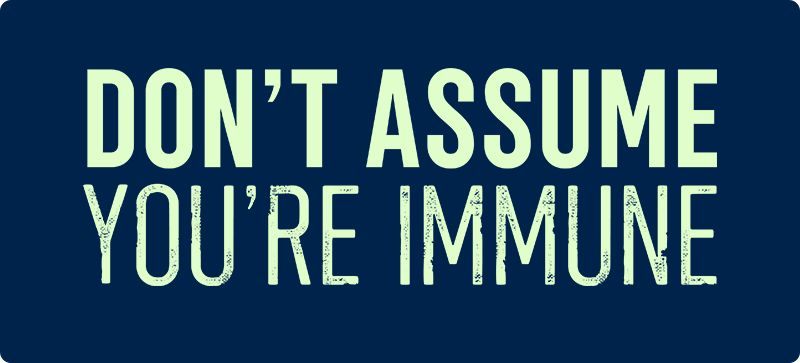

Influenza (the flu) is a common, highly contagious virus that affects the respiratory system.
The virus can cause a mild to serious illness and even death in young children, older adults and vulnerable people.
Getting the influenza vaccine is your best protection against influenza. The influenza vaccine is recommended for everyone from 6 months of age. Influenza is not the same as the common cold or COVID-19.
The virus is spread through air or water droplets when someone coughs, sneezes or talks. These droplets can settle onto hard surfaces, e.g. doorknobs, so you can catch influenza from touching a contaminated surface with the virus on it, and then touching your mouth, eyes or nose.
Typical symptoms of influenza include fever, headache, sore throat, runny nose, cough, tiredness, limb or joint pain, sneezing, loss of appetite, chills and an upset stomach. These symptoms can vary in children and infants.
Influenza can be a serious illness, even if you don’t have underlying conditions. Vulnerable groups such as babies and young children, pregnant women, older people, those with chronic medical conditions and Aboriginal people are more at risk of severe complications.
Influenza spreads even more quickly among large groups (e.g. schools, primary schools, childcare centres, aged care and healthcare facilities) and infection rates can be 2-3 times higher.
The influenza vaccine is recommended for everyone from 6 months of age and older. Immunisation not only reduces the risk of contracting influenza but also helps prevent the spread of the virus with communities, especially among high-risk populations.
The optimal time to receive the influenza vaccine is in April or May, but you can get vaccinated at any point during the influenza season, which typically spans from June to September. It may take up to 2 weeks after vaccination to develop immunity and provide protection against influenza. By getting immunised annually, you contribute to your own health and the well-being of those around you.
Refer to the WA Immunisation Schedule for detailed information, or speak to a health professional
In WA, you can get influenza (flu) immunisations from your:
It is recommended to receive the influenza vaccine annually. The influenza (flu) virus changes each year, so the vaccine is updated to provide protection against the most current strains.

Find more information about influenza (the flu) including where to get vaccinated in WA

Her condition had rapidly deteriorated after catching influenza or “the flu” from her young son in 2019.
Within a short period of time, Rochelle had been hospitalised with pneumonia and her lungs had to be regularly drained of excess fluid which had built up due to infection.
“I spent 18 days in ICU as one of my lungs had collapsed,” Rochelle said.
“During this time, I developed emphysema on part of my lung and ended up with a secondary infection called Toxic Shock Syndrome.
“They ended up having to do an operation on my lung.”
Rochelle, a primary school teacher, and her husband Adam would normally get the influenza vaccine but at the time they prioritised their children as their GP had only enough vaccines for their 2 young children.
They planned on returning for their vaccination the following week.
Unbeknown to them, their 5 year old son Harrison had already caught the virus and was experiencing symptoms.
“I’d been looking after my son and initially felt as though I was getting a cold,” Rochelle said.
“I was put on antibiotics and given anti-viral medication, but I didn’t seem to be getting any better.
“I deteriorated very quickly.
“My stomach and chest were in pain, and I was struggling to breathe, which is when I was diagnosed with pneumonia.”
Rochelle spent 18 days in ICU at St John of God Hospital in Murdoch.
Several attempts were made to move her to a general ward but issues with a high heart rate continued and she needed to be transferred back to ICU.
At one point, her doctor became concerned the pneumonia was spreading to her other lung.
“It was a challenging time of my life and it has been a long recovery.
“My heart rate remained high for around 12 months, and I was plagued by fatigue and sinus infections.
“I had to take 3 months off work and return on a gradual basis.”
Rochelle has continued to experience ongoing health issues since her illness including hair loss and fatigue.
“It took me a long time to get back to my old self,” she said.
“I used to be fit and healthy and exercised regularly but I’ve had to ease my way back into my previous routine.
“As a mother, I have never had to visit the emergency department before this experience.
“I highly recommend getting the influenza vaccine for anyone aged over 6 months. .
“One simple vaccination can significantly reduce the chance of ending up very unwell with symptoms that can continue long into the future.”